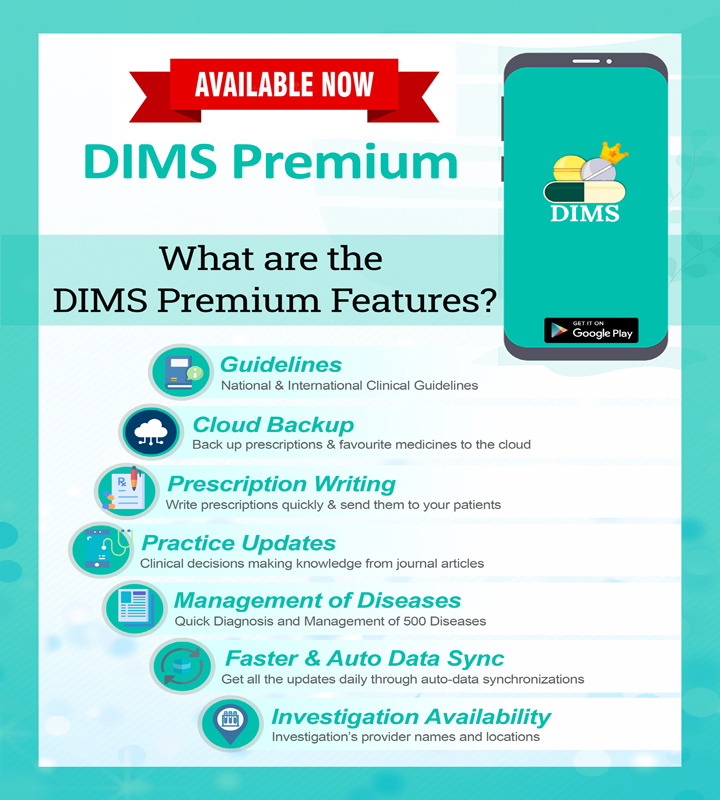Association of Daily Low-Dose Aspirin with Incident Type 2 Diabetes in Community-Dwelling Healthy Older Adults
The Lancet Diabetes
& Endocrinology: Published
December, 2023
Inflammation has been implicated in the pathogenesis of
diabetes. This study investigated the randomised treatment effect of low-dose
aspirin on incident type 2 diabetes and fasting plasma glucose (FPG)
concentrations among older adults.
TAKE-HOME MESSAGE
This post hoc analysis of the large
ASPREE trial — a randomised placebo-controlled trial evaluating low-dose
aspirin use — sought to evaluate the risk of incident type 2 diabetes with
aspirin use.
Patients receiving low-dose aspirin
therapy were 15% less likely to develop diabetes than those in the placebo
group. However, the aspirin group had a significantly increased risk of major
bleeding.
This study suggests that daily
low-dose aspirin therapy is protective against incident type 2 diabetes,
although it is associated with an increased risk of bleeding.
These findings support the theory that inflammation plays a role in diabetes development and provide a basis for further research.
CONCLUSION
Aspirin treatment reduced the incidence of type 2 diabetes
and slowed the increase in FPG concentration but increased major bleeding among
community-dwelling older adults.
Given the increasing prevalence of type 2 diabetes among
older adults, the potential for anti-inflammatory agents such as aspirin to
prevent type 2 diabetes or improve glucose levels warrants further study with a
comprehensive assessment of all potential safety events of interest.
Doctors Liked to Read More
Background: Inflammation has been implicated in the pathogenesis of
diabetes. This study investigated the randomised treatment effect of low-dose
aspirin on incident type 2 diabetes and fasting plasma glucose (FPG)
concentrations among older adults.
Methods: ASPREE was a double-blind, placebo-controlled trial of daily
oral low-dose aspirin. The study population included community-dwelling
individuals aged 70 years or older (≥65 years for US minority ethnic groups) in
the USA and Australia who were free of cardiovascular disease,
independence-limiting physical disability, or dementia. For the post-hoc
analysis, we excluded participants with diabetes at baseline or with incomplete
or missing incident diabetes data during follow-up. Participants were randomly
assigned 1:1 to oral 100 mg daily enteric-coated aspirin or placebo. Incident
diabetes was defined as self-reported diabetes, commencement of
glucose-lowering medication, or a FPG concentration of 7·0 mmol/L or more
assessed at annual follow-up visits among participants with no diabetes at
baseline. We used Cox proportional hazards models and mixed-model repeated
measures to assess the effect of aspirin on incident diabetes and FPG
concentrations in the intention-to-treat population. We assessed major bleeding
in participants who had taken at least one dose of study medication.
Findings: Between March 10, 2010, and Dec 24, 2014, a total of 16 209
participants were included (8086 [49·9%] randomly assigned to aspirin and 8123
[50·1%] randomly assigned to placebo). During a median follow-up of 4·7 years
(IQR 3·6-5·7), 995 (in 6·1% individuals) incident cases of type 2 diabetes were
recorded (459 in the aspirin group and 536 in the placebo group). Compared with
placebo, the aspirin group had a 15% reduction in risk of incident diabetes
(hazard ratio 0·85 [95% CI 0·75 to 0·97]; p=0·013) and a slower rate of
increase in FPG concentration at year 5 (between-group difference estimate -0·048
mmol/L [95% CI -0·079 to -0·018]; p=0·0017). Major bleeding (major
gastrointestinal bleeding, intracranial bleeding, and clinically significant
bleeding at other sites) occurred in 510 (3·2%) of 16 104 participants (300
[3·7%] in the aspirin group and 210 [2·6%] in the placebo group). Compared with
placebo, the aspirin group had a 44% increase in risk of major bleeding (hazard
ratio 1·44 [95% CI 1·21 to 1·72]; p<0·0001).
Interpretation: Aspirin treatment reduced the incidence of type 2 diabetes
and slowed the increase in FPG concentration but increased major bleeding among
community-dwelling older adults. Given the increasing prevalence of type 2
diabetes among older adults, the potential for anti-inflammatory agents such as
aspirin to prevent type 2 diabetes or improve glucose levels warrants further
study with a comprehensive assessment of all potential safety events of
interest.






Comments
You must login to write comment